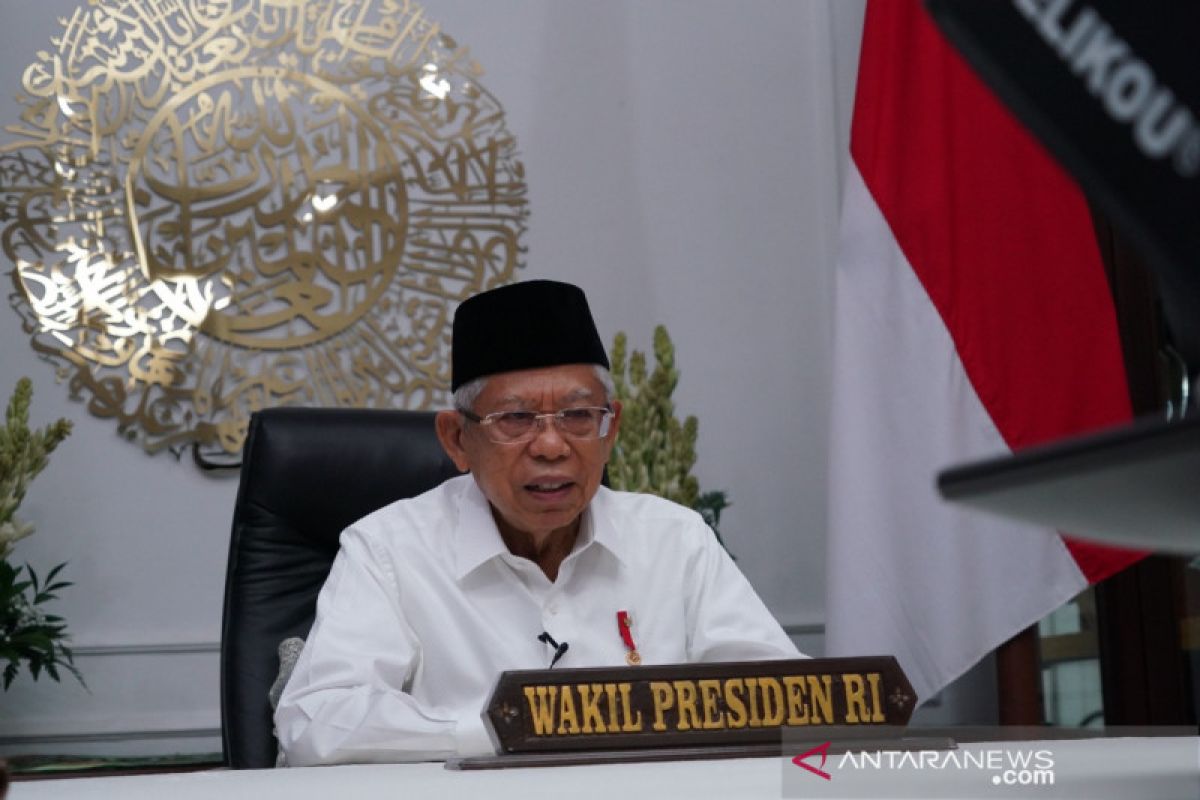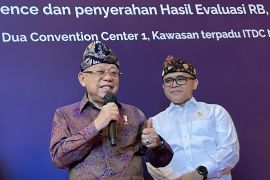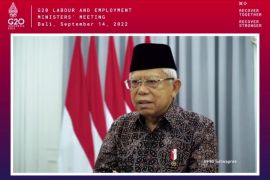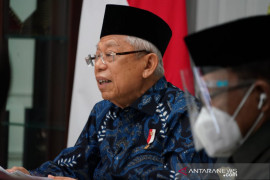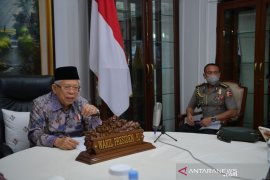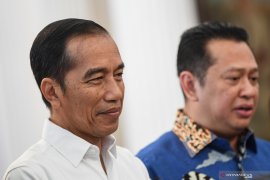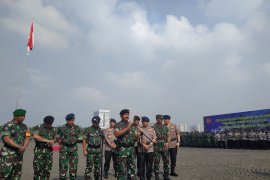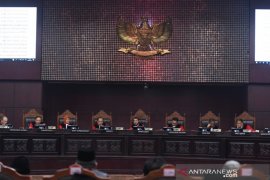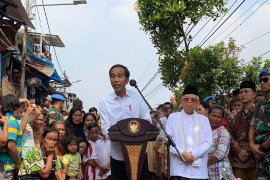"In the era of digitalization, issues of radicalism and the spread of fake news and hoaxes, through information technology, have the potential to erode the unity and integrity of the nation," Amin stated at a virtual briefing for new students at the Merdeka Malang University, Tuesday.
The vice president reminded students to not be influenced by the spread of hoaxes, as it could have a negative bearing on the minds of youngsters taking up higher education.
All students and educators are also expected to foster a sense of nationalism in accordance with the values of the five principles, Pancasila, and Bhinneka Tunggal Ika (Diversity in Unity).
"Do not buy into the notion of liberalism, secularism, or radicalism being easily influenced by hoax news, which can tarnish the image of the campus and values of national unity and integrity," he remarked.
Related news: Tourism Ministry, BNPT develop anti-radicalization program
The vice president also called on leaders and educators to pay attention and strengthen the teachings of national insight.
"The principle of Freedom to Learn, which was proclaimed by the government, needs to be the principle and determination of all campus residents and students, especially in increasing research and innovation activities," he remarked.
Meanwhile, Minister of Education, Culture, Research and Technology, Nadiem Makarim, remarked that students can learn by gaining experiences outside their study program for three semesters.
"The Ministry of Education, Culture, Research, and Technology gives all students throughout Indonesia the right to study outside their study program or campus for three semesters," he stated.
Related news: Ma'ruf Amin cautions of radicalism, Islamophobia triggering conflicts
Students can partake in independent campus programs, such as internships in companies or world social organizations, building villages, working on humanitarian projects, starting entrepreneurships, and teaching at elementary or junior high schools.
Globalization and highly dynamic technological developments currently pose challenges to the endeavors to tackle radicalism, Amin earlier stated.
"We are faced with the challenges of globalization and the development of communication technology, as well as very dynamic information sharing," Amin stated.
The opportunity to obtain global information quickly through the application of technological developments causes information to flow widely and swiftly across countries.
"The implication is that information, including on the values of radicalism and extremism, spreads rapidly across borders between countries. The recruitment process also occurs through the use of new media with all its derivations," he pointed out.
Moreover, the issue of terrorism also raises uncertainty and further compounds international, regional, and domestic problems.
Related news: Do not believe in hoax on omnibus law: MPR Chief
Translator: Fransiska, Azis Kurmala
Editor: Suharto
Copyright © ANTARA 2021
